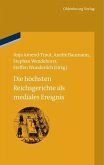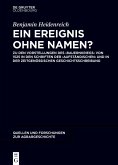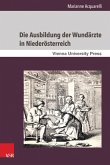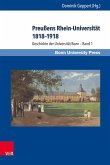The author examines the sixteenth-century global event-making of the Battle of Lepanto. He decenters the history of Lepanto, which is commonly defined as a victory of 'Christian Europe', by revoicing silenced stories uncovered through research undertaken in more than 170 archives, libraries and museums. Contemporaries shaped Lepanto's meanings as connected histories in areas ranging from London to Venice, Rome, Sicily and Ethiopia, from the German lands, Russia, the Ottoman Empire, Persia and Japan to the Philippines, South America and the Iberian Peninsula. By challenging the perception of a particular battle, the volume contributes to a broader methodological debate on the status of events in history.
Dieser Download kann aus rechtlichen Gründen nur mit Rechnungsadresse in A, B, BG, CY, CZ, D, DK, EW, E, FIN, F, GR, H, IRL, I, LT, L, LR, M, NL, PL, P, R, S, SLO, SK ausgeliefert werden.









